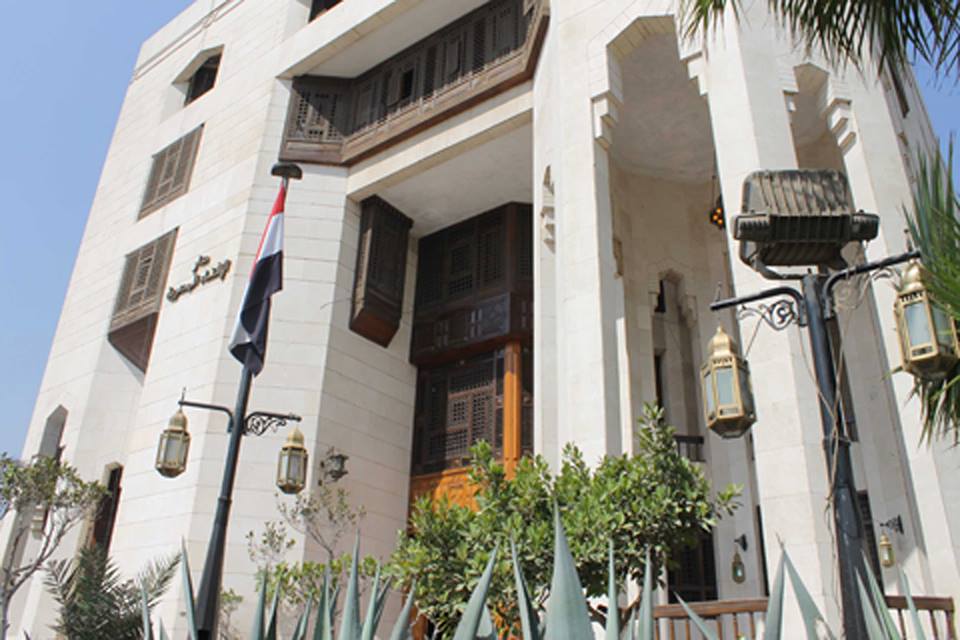Dar al-Iftaa’s third report on “The impact of extremist fatwas on the image of Islam in the West”

The observatory at Dar al-Iftaa monitoring infidelizing fatwas issued its third report on “The impact of extremist fatwas on the image of Islam in the West”. The report maintains that Muslim political groups deal with religion as a political ideology and assign unqualified individuals to talk about Islamic law. This consequently puts us in the face of growing challenges to present the true image of Islam to the entire world.
The report provides examples of fatwas inciting murder, violence and abductions and presents their impact on the image of Islam all over the world. The most famous fatwa which was issued by Al-Khomeini in the late 80’s incited the murder of Salman Rushdie, the Indian-born British writer and author of Satanic Verses. Western media treated the matter with extreme bias and generalization, purporting that Islam calls for the murder of a novelist due to his writings. The novel was consequently translated into several languages while many Western writers and intellectuals launched attacks against Islam and Muslims under the pretext that Islam encourages the murder of Salman Rushdie.
The report also describes the actions of Boko Haram as violations against sanctities and life, a matter which Dar al-Ifta` regards as a flagrant exploitation of fatwas to justify criminal operations against innocent individuals.
The report further maintains that since its establishment, the Boko Haram movement has plucked religious texts out of their context and misplaced rulings. They attacked churches, schools, police stations, the army, government authorities, kidnapped tourists and murdered Muslims who criticized them.
The report shows that the number of people murdered by Boko Haram according to official statistics is estimated to be 10 thousand individuals, including a great number of school children. Boko Haram provoked international criticism after they abducted tens of school girls from a school. The fatwa monitoring observatory at Dar al-Ifta` noticed that news programs and talk shows in foreign media used this incident as a pretext to undermine Islam and its teachings. The report praises the noble Azhar’s condemnation of Boko Haram’s criminal acts which it says are totally alien to the teachings of true Islam. The Azhar further demanded the immediate release of the kidnapped girls.
The report adds that such misleading fatwas and calls for murder, abduction, and destruction made by extremist Muslim groups places upon us a historic responsibility that requires making real initiatives with the aim of engaging in direct dialogue with persons of opinion, intellectuals, and the media in the West.
The report cites that dealing with religion as a political ideology is one of the most important reasons behind the emergence of such extremist fatwas. As such, this is the greatest betrayal against religion, because it reduces Islam to a set of superficial principles, limits its mercy, and permanently inclines it towards violence.
The report states that the violence practiced by these extremist groups receive wide media coverage, particularly in the West where the voices of the vast majority of Muslims who categorically reject this violence are ignored. Sometimes some parties deliberately put the spotlight on these extremist groups, pushing them to the forefront with the aim of placing true Islam in a negative light.
The report mentions that unqualified individuals addressing Islamic law are among the main underlying causes distorting the image of Islam. It stresses that the Western media should bear a moral responsibility and allow competent Muslim scholars to clarify the truth about Islam to the whole world instead of hosting people with only a superficial knowledge of Islam to speak in its name and consequently misguide the public.
The report determines the necessity of communicating and holding dialogue with the outside world to explain and clarify matters without having defensive or offensive aims. Islamic law exhorts this approach and the Qur`an addresses Jews, Christians, those who deny resurrection and the heavenly revealed religions with reason and evidences. Dialogue is always beneficial because it serves to explain the logic of Islam and its clear proofs.
The report also recommends the need to coordinate Muslim efforts to monitor fatwas against Islam and Muslims, deal with them in a practical and scholarly manner, and rebut all misconceptions about the image of Islam and Muslims. Muslims need to address and communicate with the West in a language they understand and through all means to convey the Muslim message to the heart of the American and European societies and thereby remove any doubts and misunderstandings about Islam and Muslims . In addition, Muslims need to make in-depth studies of the causes behind the phenomena of infidelization and extremism which motivate many to resort to violence, bear arms, and clash with those around them.
 Arabic
Arabic French
French Deutsch
Deutsch Urdu
Urdu Pashto
Pashto Swahili
Swahili Hausa
Hausa
